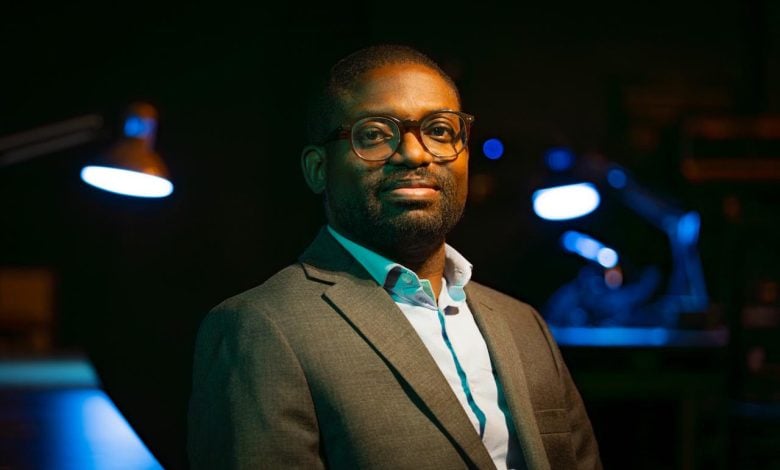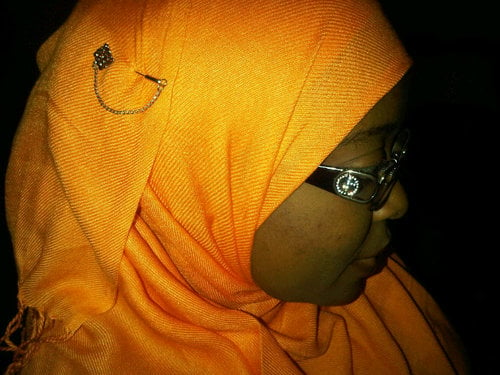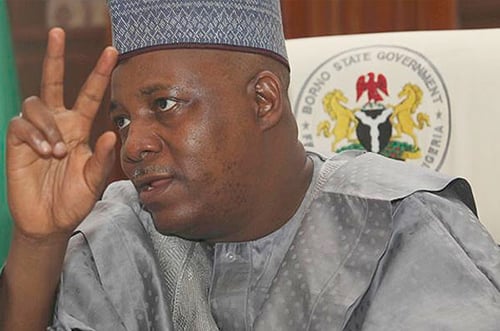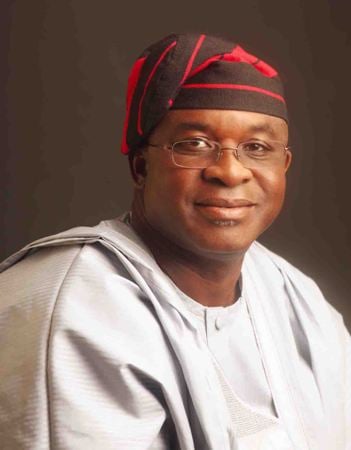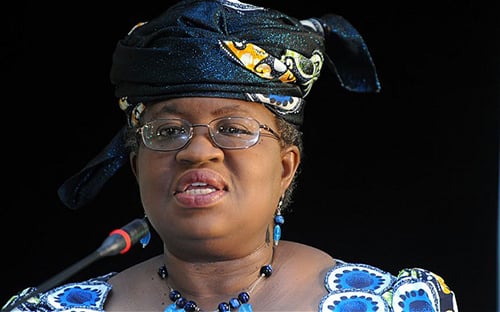BY ARUKAINO UMUKORO
Nigerian-born Canada Research Chair in socially engaged theatre, Professor Taiwo Afolabi, is a globally recognised scholar, artist, and advocate whose work bridges art, research, and social justice. A 3M National Teaching Fellow – Canada’s highest national recognition for teaching excellence – and fellow of the Royal Society of Arts, as well as a member of the Royal Society of Canada’s College of New Scholars, Afolabi has used theatre as a powerful tool for human rights, equity, and transformation across continents. In this Africa Interviews conversation, Prof. Afolabi, who also serves as director of the Centre for Socially Engaged Theatre at the University of Regina, reflects on migration, race, identity, and the power of storytelling to reshape global narratives about Africa, while highlighting how theatre can address inequality and inspire collective change
How did you receive the news of your appointment as Canada Research Chair?
I was excited when I received the news. It changed the trajectory of my academic career. I finished my PhD in 2020, became a candidate that same year, and by 2021, I was appointed a CRC. Normally, people spend about five to 10 years in academia before that happens, so I’m truly grateful.
Advertisement
My job involves training, mentoring, and supporting researchers and graduate students—from master’s to PhD to postdoc levels—while building research that can shift communities and systems in global discourse in my field. The Canada Research Chair (CRC) program is a prestigious initiative within universities to attract and retain excellent talent. Similarly, the 3M National Teaching Fellowship, which I also received this year, is the most prestigious recognition in Canada for teaching excellence, educational leadership, and innovation.
Back to the CRC—as we call it—my job is to offer vision and lead major research projects. Most of my work happens at the Centre for Socially Engaged Theatre, in partnership with my theatre company, and several other partners worldwide. It’s now a hub for researchers around the world. I’ve hosted scholars from Australia, Ukraine, China, and the US, including from Howard University, where I led an executive delegation to establish an MOU between my university and theirs, serving as Executive Strategic Advisor.
How was growing up for you?
Advertisement
Growing up was amazing because, even though I always say that I come from a very humble background, we were not short of love – we had love in abundance. I grew up in Ile-Ife, Osun state, Nigeria. Our Christian faith shaped us. Our parents were remarkable and had a lot of foresight. Despite our economic background, they insisted that my siblings and I receive a good education. They always emphasised character, strong work ethics, and values. Our parents were more than just mentors; they were guardians, sponsors, and constant examples of faithfulness. I’m thankful for God’s faithfulness all the time,
When did you leave Nigeria for Canada?
I relocated to Canada in 2015. Prior to leaving Nigeria, I did my diploma and undergraduate studies at the University of Jos. After I finished, I started my theatre company, Theatre Emissary International (TEMi), and a Mobile Research Lab. I also completed a master’s program at the University of Ilorin, Kwara State, many people don’t know that. I finally left Nigeria in 2015 for my doctorate program. Initially, I went for a master’s, but based on the research I proposed and the kind of work I was going to do, my supervisor said, “This is way too much for a master’s; let’s convert it to a PhD.” I completed my program at the University of Victoria, British Columbia, and became a Canada Research Chair afterwards.
What was the topic of your PhD research?
Advertisement
My research focused on two key concepts: participation and ethics. I explored what participation means and how it manifests between two groups—internally displaced persons (IDPs) and internationally displaced persons (refugees). I examined how theatre engages these communities—the ethics of collaboration and the ways participants shape and respond to the process. I developed a framework around epistemic and anti-participation. I worked with two groups: refugees in Victoria, British Columbia, and students in Ile-Ife, Nigeria, who were affected by the crisis around 2017. The school had been shut down due to the conflict, and I used theatre to engage the students in healing and dialogue.
Considering the often-negative narratives about Nigerian issues and the growing trend of ‘Japa’ (popular Nigerian slang for emigration), what motivated your own decision to relocate?
My framing of Japa isn’t just about Nigeria ‘happening’ to people. It’s about Nigerians and their entrepreneurial, innovative spirit – but that’s a different conversation. My leaving in 2015 was for me to further my studies because, before I left, I had my theatre company. Before then, I also went to the United States on the International Visitor Leadership Program (IVLP). I was nominated directly from New York.
Before I left Nigeria, my theatre company had worked in over a dozen countries across four continents. I had done research in Denmark and travelled to the U.S., China, Burkina Faso, Côte d’Ivoire, the Benin Republic, and other places. I left because I needed to go further in my studies. There were things I needed to express and build more capacity for.
Advertisement
Can you speak more about this other perspective, that Nigerians relocate not just because of the country’s challenges, but for other reasons?
Absolutely. I’m always a proponent of rethinking dominant narratives. The challenge I have is that the perspective of a typical African in the West is often negative. We need to challenge that. In the context of Japa, people have always been relocating or Japa-ing – if I may use that word. In fact, the idea of migration or leaving one’s country is not a Nigerian thing.
Advertisement
For me, Japa is not just about people leaving because they want to move; it’s about the reality that humanity was not designed to stay in one place. You can “Japa” from Lagos to Jos — that’s migration within the same country. We’re constantly searching for ways to energise that, to build capacity, and to make an impact. So, for me, Japa is a way to expand our impact and exploration.
If Mungo Park, whom we sometimes call the head of “Japa”, hadn’t travelled, he wouldn’t have discovered the Niger River. My point here is that we need to start looking at things from a strength-based approach. The challenge I find with many of our narratives about Africa is that it’s always framed as though Africans are “not enough.” It’s often said that others are coming to help or take from us – but the truth is, many immigrants outperform the communities they move to, and history supports this.
Advertisement
So, when we look at Japa from that perspective, we see that many of us are out here to contribute meaningfully—to show the entrepreneurial and innovative spirit of Nigerians and Africans. Yes, there are economic challenges, but we need to change the narrative that hardship is the only reason people move. That kind of thinking makes it seem like we’re never enough or that where we come from is always a problem. Yet, even with those challenges, investors are still putting money into Nigeria, especially in fintech and innovation.
In light of these issues, what’s your view about race and immigration, especially as countries like Canada, the U.S., and the U.K. tighten their borders?
Advertisement
I’ll try to be very non-political here because politics is not my domain, so I stay away from it. That said, it’s important for us to understand immigration. Each country looks out for itself, but within the context of globalisation, immigration has become the order of the day. It’s not about whether one country is doing well or tightening its borders; the reality is that immigration moves in cycles. For example, Germany, many years ago, opened its borders. Each country is always asking: “What do we need now, and how do we attract talent, individuals, and systems to grow our GDP and national impact?”
When it comes to immigration, each country needs to reflect on what participation in the global ecosystem means. For us as Africans — whether immigration or emigration — it’s important that we start thinking about the systems we have and the ones we need to create. We also need to identify what to unlearn and what to relearn.
What sparked your interest in your early or later life? Were there specific events or mentors that shaped your passion for this?
I actually address this question of purpose in a book I recently edited. I always say that when you’re coming from a country—especially Nigeria—you are bound to see many things that need to change. My parents would always say, “Whenever you get to a place, ask yourself what you can contribute to make that place better, and leave it better than you met it.” That has always been ingrained in me.
Using theatre became a natural expression of that belief. I started acting in secondary school, and when I got to university, I discovered Theatre for Development. It clicked—I knew this was the kind of theatre I wanted to do. Later, I learned about Applied Theatre, which goes by different names, and that helped shape my work. When I started my theatre company, its focus became using theatre within social contexts, alongside film, research, and production.
In church, I used theatre to address issues; in school, I directed the drama club, and we used plays to challenge social problems. Over time, I’ve continued using theatre to explore themes like policing, homelessness, immigration, and race—issues that remain deeply relevant today. Running a theatre company also exposed me to the business side – mobility, visa challenges, policies, and tour logistics – which pushed me to develop creative strategies. Bringing together theatre for social change, applied theatre, and the creative industries has shaped my journey. I’m grateful that this work has taken me to over 30 countries across five continents, and I’m thankful for that.
Did you face any challenges as an African student coming to a new country like Canada? What’s your advice to African students migrating abroad? Any culture shock?
Yes, challenges exist everywhere, not only in Nigeria. The difference is how much attention they receive. Whether you study in Canada or elsewhere, you’ll face language barriers, culture shock, and socio-economic differences. Many international students are not mentally or psychologically prepared for this. I always tell my mentees: prepare your mind. The system you’re entering is new, and adapting is not linear – it will test your assumptions.
First, recognise that barriers exist – economic, social, and cultural – but you must be ready for them. Build allies, networks, and support systems, and ensure these relationships are mutual. For some, the biggest challenge isn’t money but culture. I had my undergraduate and master’s in Nigeria and had travelled before starting my PhD, yet the system in Canada was still different.
For example, when I received my syllabus, my supervisor said, “Let’s discuss—what do you want to keep or remove?” I was surprised because in Nigeria, syllabuses are fixed. Even social cues differ: in Nigeria, looking someone in the eye can be rude, but in Canada, it’s a sign of respect. Communication styles also differ—directness in Nigeria can seem bossy in Canada. These nuances take time to learn. Find your tribe, but connect beyond it—build diverse relationships.
Most importantly, know your purpose. You’re there to grow, support others, and pave the way for those coming after you. The story of today becomes the history of tomorrow. As Africans abroad, we must collectively change the narrative – many Africans are doing incredible things globally, and we should celebrate that.
How have theatre and your work helped in shaping a more socially conscious society in Africa and worldwide?
It takes a community. While I play my part, many Africans are doing remarkable work. My focus has always been to inspire others—to show that their vision is valid and achievable, especially for those from less privileged backgrounds who may not see role models around them.
Within academia, I hope my journey helps others believe in their possibilities and contributes to rebranding Africa’s image. We often hear negative stories, but there are countless positive ones. As Chimamanda Adichie said, the danger of a single story is real—it overshadows excellence. Representation matters. Many African students reach out to me because seeing someone who looks like them teaching gives them confidence and belonging.
Beyond that, I’m deeply invested in systemic and structural change, creating platforms for collaboration within the ecosystem of culture, creativity, and community work. My work uses theatre to shift narratives through creative disruption and foster collective action, even as education systems evolve. My goal is to create platforms that bring people together—to synergise, collaborate, and build partnerships within the ecosystem of culture, creativity, and community work.
On systems and structures, what will you tell African governments?
Countries that thrive are those that take their citizens seriously and invest in strong systems and structures. Our governments must do the same—build frameworks that make innovation and entrepreneurship not just enticing but thriving. We need systems that incentivise growth across all sectors – culture, theatre, fintech, technology, and more. Across Africa, especially in Nigeria, we have incredible talent. If we create the right environment, people won’t need to leave to succeed. Many citizens Japa to places where systems work. Our governments must create such enabling environments through policies, infrastructure, and investment in education.
Education is critical. Without building capacity, critical thinking, and technical competence, we won’t be future-ready. The world is changing—AI and deep tech are emerging. Are our systems ready? The right environment determines survival and success. Countries like South Korea show what’s possible with strong infrastructure and intentional policies. With Africa’s youth, talent, and resilience, we only need the right support systems.
As a mentor to many young scholars and artists. What’s your advice to young Nigerians and Africans at home and in the diaspora who feel despondent?
First, know your context. What works for one person may not work for another. For those in Nigeria, we see you, we hear you. Despite the challenges, keep the dream and hope alive. Understand your reality but remain resilient. Even when you can’t control external events, you can control your response. Keep searching for opportunities—they may be near you, in your community, or your place of worship.
For instance, I learned to play the keyboard and drums in church—not in school. The church became a training ground, teaching me leadership, teamwork, and event management. After secondary school, I started a coaching centre to help students struggling with literature and English. I didn’t earn much, but it taught me entrepreneurship—market evaluation, planning, and persistence. So, invest in yourself. Build where you are, even as you prepare for what’s ahead.
For those in the diaspora, remember that relocation means starting afresh. You may have credentials, but you’ll still need to build new relationships and alliances. Be honest about your goals. Keep your vision alive even amid survival pressures. Survival can be intense—you pay for everything except air. Many immigrants arrive full of dreams but get overwhelmed by bills and responsibilities. Still, even in survival, keep developing yourself. Start small, be patient—it’s a process. Build relationships and represent your people well. Don’t misuse opportunities. Misusing opportunities today can affect someone who looks like you tomorrow. Keep working, stay strategic, and always do things well. Build bridges for others to cross after you.
What is the future of theatre in Africa and the diaspora, and how much impact will it make?
The impact is already visible; it’s happening. The essence of theatre is storytelling, and storytelling is the future. Africans have always been storytellers. The key now is to package, tell, and own our stories, and to build the infrastructure that allows us to benefit from them. Even AI and businesses rely on storytelling—it’s central to communication, marketing, and innovation.
Our stories evolve with each generation. The way Hubert Ogunde told stories in the 1950s differs from how we tell them now through new media, and future generations will have new tools. But the essence remains. Theatre teaches us not just to tell stories, but to understand character, conflict, and consequence. From the Tortoise tales to modern plays, the lessons endure. If we build the infrastructure to tell our stories our way—with our voices, for our audiences—we’ll preserve our identity and reap the benefits of owning our narratives.
Looking back on your journey from Nigeria to Canada, what would you tell your younger self, and what has your journey taught you?
When I was leaving Nigeria in 2015, my elder brother, whom I deeply adore and respect, walked with me around our home in Ife and told me something I’ll never forget. He said, “You’re going to a new place. Don’t discard everything you’ve built and learned so far. What you have now, take it with you and build on it.” That advice has stayed with me. Yes, when you arrive in a new country, you often start afresh – but your skills, confidence, and experiences remain valuable. At some point, you can repurpose them. That’s how growth truly happens.
Over the years, I’ve learned that if you think it’s possible, it is possible. Put in the work. Build strong relationships. Stay humble. Stay committed. Be grateful – and remember that the sky is only the beginning.
This article was originally published on Africa Interviews and republished here with permission

